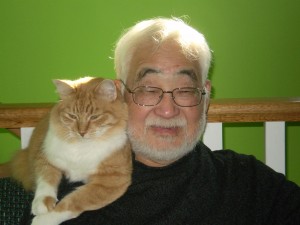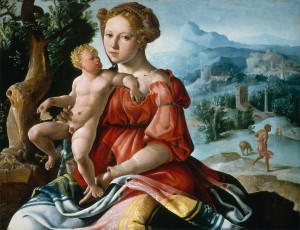THE DEBATE GOES ON
– The first fight of the Christian Church: Paul verses James –
When you advocate rehabilitation as the primary purpose of the criminal justice, you are speaking like St. Paul. On the other hand when you insist on punishment fit for crime, you represent St. James’ point of view.
The two letters; one by Paul to the Galatians and the other by James addressed to all Christians represent two opposing views that split the first Century Christians into two camps. The question is so universal that the same debate continues even today not only in the Christian Church but also in the society general, as in the current debate about crime and punishment. In the first century church, it was manifested in a debate between faith verses deeds. Among the Buddhists, the same split exists: those who believe in achieving Nirvana through self-help – meditation and good work in Mahayana Buddhism verses those believe the need for mercy of Amida like Jodo-Shinshu Buddhism.
The New Testament letter by Paul to the Galatians is an angry letter. In Galatians 3: 1-6 Paul called them “stupid.” What a language to find in the Bible! He felt that the people in Galatia – the Western region of the present day Turkey betrayed him by reverting back to the old ways. Paul represented the group of Greek speaking Christians who lived outside of Palestine. They included the diaspora Jewish Christians as well as Gentiles ( non-Jews) who converted to Christianity. Because the Good News of Jesus Christ first started to spread amongst diaspora Jews who heard the new teaching by Jesus’ Apostles in Synagogues, they continued to live in the Jewish life-style after they had accepted Christian Gospel: observing traditions like circumcision, kosher food, and the moral code of ethics instituted by Moses and recorded in the Torah – the first five books of the Old Testament. They must have perceived the way of Jesus Christ as a reformed Judaism.
A serious question was raised when the non-Jewish Christians began to increase very fast in number. The question was: Should they become Christians without becoming Jews? Should they be circumcised, if they are men, before they are baptized? Should they continue to eat their own food they were used to disregarding the Kosher regulations? Paul and his friends said that it’s optional, so long as they accepted Jesus as the Messiah. They thought the sacrificial love shown by Jesus on the cross made the laws of Moses redundant. What is the most important is faith in Christ and his forgiving love.
On the other hand, those Jewish Christians who lived in Palestine, sticking to their original belief in the laws of Moses, insisted that the followers of Jesus Christ were still descendants of Abraham in faith and had to follow the Law of Moses. The good deeds according to the Torah, that included ritualistic practices like circumcision, kosher food, and head-cover, still are the essential part of the way to the salvation. This group of Christians was led by James, a brother of Jesus. They were the church in Jerusalem. James was incensed when he saw what looked like apostasy in the fast growing new Christ movement outside of Palestine, particularly amongst gentile Christians. He thought it was a belief without roots, faith without fitting conducts. So the Church in Jerusalem sent out teachers to correct the wrong teaching in the scattered churches in Asia Minor.
The dispute became so serious that the General Council of all Apostles and representatives of the all churches was called by Peter and James in Jerusalem to address the issue. (Acts chapter 15) Paul and Barnabas were sent from the church in Antioch to represent the Christians outside of Jerusalem and Palestine. Peter urged the assembly to affirm the basic belief of the Gospel of Jesus Christ, that all were saved through the love of the Lord Jesus Christ (Acts 15:11) Paul and Barnabas followed Peter by informing the assembly all the wonderful things happening to the churches throughout the Roman Empire, with the increasing numbers of gentile Christians. People were impressed and fell silent. James at the end declared not to trouble those gentiles who were turning to God, providing that they observe a few basic moral and ritualistic codes. (Acts 15: 13 – 21)
However, the fight has never ended. The earliest fight between Jerusalem and the rest of the Roma Empire fizzled out when the Church in Jerusalem became so impoverished and eventually drastically diminished, while the Church in the wider Roman Empire grew in leaps and bound. In fact, growth in the church in Antioch, which was initially considered to be the headquarters of the Christians outside of Palestine, was so fast that the name “Christian” was labelled against them as a derogatory nickname. It shows how passionate their practice of faith was. The name meant something like “Christ-crazed gang”, because they spoke about Christ all the time. (Acts 11:26) However, the same debate was taken over by the split between Roman Catholic and Protestant churches in the late Middle Age. I don’t want to go into the lengthy explanation of the dispute between the Protestant position of “faith alone” and the Roman position of importance of “good deeds” The point is: the debate never went away.
In Galatians 2:16, Paul says: “A person is put right with God only through our faith in Jesus Christ, not by doing what law requires.”
In the meantime, James says: “What good is it for someone to say that he has faith if actions do not prove it? Can that faith alone save him?” (James 2:14)
Martin Luther didn’t think too much of James, he being a founder of Protestantism. He called the Letter of James “just a strand of worthless straw.”
Should we forget the importance of good deeds completely? A good question! Prime Minister Stephen Harper thinks that the laws in Canada are too lenient: criminals are getting away with murder. There is a limit to faith. He is changing the laws incrementally to let the criminals pay for the crime in stead of victims suffer, because deeds matter. Many people have problem with that.
The debate continues.



